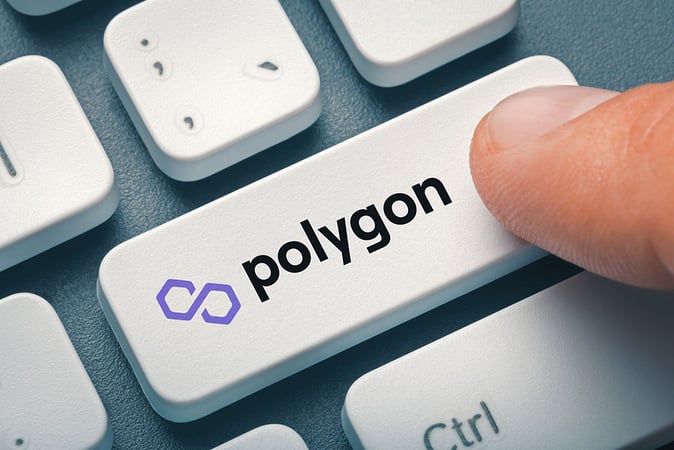Polygon, one of the most prominent Ethereum scaling solutions, has announced a significant update that could reshape its ecosystem. The project is transitioning from its long-standing native token, MATIC, to a new Ethereum-based POL token. This move is more than just a token upgrade—it represents a strategic shift to improve scalability, governance, and utility in the Polygon ecosystem. Here’s everything you need to know about this transition and why it matters.
Why Polygon Is Transitioning From MATIC to POL
The Polygon team has made it clear that this transition is not just a rebranding of the token but a technological evolution designed to unlock more advanced features for the network.
A Move Toward Enhanced Utility
MATIC, while effective in the past, has limitations in how it can be used within the expanding Polygon ecosystem. With the rise of new chains like Polygon zkEVM and the Polygon CDK (Chain Development Kit), there’s a growing need for a more flexible and powerful token. The POL token has been designed to meet these needs.
Future-Proofing the Network
The Ethereum ecosystem continues to evolve rapidly, and Polygon aims to keep pace. By adopting an Ethereum-native token standard, Polygon ensures better compatibility, security, and decentralization. POL will be ERC-20 compliant, making it easily integrable across various DeFi platforms, wallets, and exchanges.
What Is the POL Token?
The POL token is an upgraded version of MATIC, but it’s built on a more sophisticated smart contract that allows for multi-purpose staking, governance, and network participation.
Key Features of POL
-
Multi-Chain Staking: One of the standout features of POL is its ability to be staked across multiple chains within the Polygon ecosystem.
-
Governance Capabilities: POL holders will have enhanced voting rights and a more active role in ecosystem governance.
-
Ecosystem Support: POL is expected to be the backbone for validating and securing various chains within the Polygon network, including zk-rollups and app-specific chains.
The Transition Timeline: How and When?
Polygon has outlined a phased approach to transition from MATIC to POL. According to official sources, the transition began with the deployment of the POL smart contract on Ethereum mainnet, marking the first critical step.
Step-by-Step Migration
-
Smart Contract Deployment: The POL contract has already been deployed to Ethereum.
-
Token Swap Interface: A user-friendly interface will be launched to allow MATIC holders to swap their tokens for POL at a 1:1 ratio.
-
Phased Adoption: Validators, developers, and dApps will gradually integrate POL in place of MATIC.
-
Full Migration: Over time, POL will completely replace MATIC as the native token across all Polygon protocols.
Polygon has assured users that the swap process will be optional initially and that MATIC will remain functional during the transition period. However, users are encouraged to switch to POL to take full advantage of the new features.
How Will This Affect MATIC Holders?
For current holders of MATIC, the transition to POL will be relatively straightforward. However, understanding the implications is crucial.
1:1 Token Swap
The token swap will be conducted on a 1:1 basis, ensuring no loss in token quantity. Users will simply convert their MATIC tokens to POL through a designated portal.
Incentives for Early Movers
While no specific rewards have been confirmed, early adopters might benefit from staking incentives or governance privileges. Polygon often uses such incentives to promote community participation.
Continued Support for MATIC (Temporarily)
To minimize disruption, Polygon will continue supporting MATIC for the foreseeable future. This ensures that users and developers have ample time to adapt to the new token system.
Impact on Developers and Validators
The POL token introduces new opportunities for developers, validators, and infrastructure providers within the Polygon ecosystem.
Developers
POL’s flexible staking and governance mechanisms allow developers to customize their own chains using the Polygon CDK. This opens up a world of possibilities for creating application-specific chains and integrating native support for POL.
Validators
Validators will transition from staking MATIC to POL. With multi-chain staking, validators can participate in securing multiple chains simultaneously, increasing their revenue potential and strengthening network security.
Community and Ecosystem Response
The community’s response to the POL announcement has been largely positive. Many see it as a proactive step toward ensuring Polygon remains competitive in the fast-moving Web3 space.
Industry Reception
Crypto influencers and developers have praised the move as a necessary upgrade to keep up with Ethereum’s Layer-2 innovations. Analysts suggest that POL could become a model for how other ecosystems approach token utility and governance.
Potential Risks
Of course, transitions like this are not without challenges. Issues such as liquidity migration, exchange listing delays, and user confusion can slow adoption. Polygon’s clear communication and gradual rollout strategy aim to mitigate these risks.
What This Means for the Future of Polygon
The POL token is not just a technical change—it represents Polygon’s vision for a more modular, interoperable, and decentralized network. It positions Polygon to take a leading role in the Layer-2 scaling race, especially as Ethereum continues to evolve.
Aligning with Ethereum’s Future
By adopting an Ethereum-native token model, Polygon aligns more closely with Ethereum’s roadmap, including upcoming upgrades like EIP-4844 (Proto-Danksharding), which will benefit Layer-2 chains immensely.
A Step Toward Web3 Mass Adoption
With the POL token at its core, Polygon can build more scalable and user-friendly products, making it easier for mainstream users to interact with Web3 applications.
